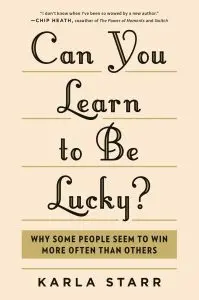The way that others evaluate you–your photo, résumé, tattoo, or first-date cardigan–follows the same process of placing marbles on a scale as soon as they get any information.
We form impressions of people the same way we form an impression of anything: As soon as our scale of marbles starts tipping one way, we begin to develop a hunch and then start gathering evidence to back that up by selectively picking up the marble that’s easiest to pick up.
Sometimes, when we learn to pair the seemingly benign (the font someone used on a résumé) with something of known value (Bob used that font on his application, and he was the worst), we form an attitude that we adopt in future judgments. Because of our survival-based need to evaluate others quickly, this can even mean picking up marbles from irrelevant sources and mistakenly attributing them to a person.
Our lazy brain makes unfair assessments
Here’s the thing–our brains are lazy and our time is limited. As we get more options, we become more superficial about everything. “Basically, we get around choice overload by ignoring most of the options that have been made available to us,” says the decision-making researcher Peter Todd.
Consider what this decision-making strategy looks like in the context of our professional life. Blindly submitting a grad school application, or emailing our résumé to a hiring manager we don’t know leaves us open to being on the receiving end of this kind of snap judgment. Without realizing how stiff the competition really is, we might mistakenly assume that producers, managers, promoters, or agents will make it to the end of our reel, portfolio, or short story. But if we have a crappy website, they might not even get to the rest of our application.
Related: These 5 unconscious actions impact first impressions at interview
Why we keep following these haphazard processes
Like tattoos and Olympians, when the “best” is subjective, mere order changes who emerges victorious. As long as the gatekeepers eventually find a worthwhile candidate, it doesn’t matter. Life is not a pure and virtuous luck-free meritocracy because not all merit gets a fair chance.
Think about a hiring manager evaluating a stack of résumés, one of which advertises a candidate’s fluency in French. Does it matter, even if the position is for a web designer? It just might.
“Suppose the judge has a long-dormant interest in learning French to talk to her elderly aunt in Montreal. No doubt the other applicant would feel a warm glow for being offered the job,” writes Warren Thorngate in Judging Merit. “But how would you feel about such a one-step judgment, especially if you spent three days preparing your résumé for the job opening but did not bother to note in your résumé that you, too, speak French?”
I called Thorngate to ask how such haphazard processes manage to continue. “They may have overlooked some very good candidates, but they don’t care,” the judgment and decision-making researcher replied. “It’s not a punishing error for the person who does it.”

Of course, there’s still the interview–but they’re not foolproof either. When our scale starts leaning to one side, it becomes easier to pick up marbles belonging to that side. Getting a hunch about someone makes it easier to notice relevant information about them. Once we start feeling like someone might not be a good “fit,” we act uneasy, which makes that person feel and act awkward. When we like someone, our friendliness allows that person to open up with confidence. People are more confident about their judgments when they have more information about someone before the interview, but that’s because they spend more time picking up one type of marble. Unstructured interviews, the most common form of hiring, are ripe with self-fulfilling prophecies.
“It’s one of those problems where everybody thinks that they’re a good interviewer and they’re a good judge of character,” says the researcher Kristine Kuhn. “But obviously people just are not nearly as good as they think they are. Even [if ] they met someone and judged them as a great employee and hired them, and then they turned out to be bad, that doesn’t shake people’s confidence. They can always explain away that it really didn’t have anything to do with them not being a good judge of character.”
It’s hard for us to confront our flawed judgment
Think about that: Most of the hiring, dating, and luck-granting selection processes in use never offer corrective feedback. When was the last time you got a bad feeling about someone and then genuinely tried to prove your hunch wrong? Improving your decisions requires corrective feedback.
You’d have to concede that you could be completely and utterly wrong, and perhaps take your chance to hire or date someone irrespective of your weird feeling. You then have to try and figure out where that source of feeling comes from, and then work to eliminate those biased sources of information.
That’s a lot of hard work that most of us are frankly not willing to do. It’s easier to discard the application, ignore the message, toss the unpublished novel, cross the street, and move on with our lives, ever so satisfied with ourselves for making yet another sound judgment of character–especially when the brain interprets mistakes as punishments and feeling right feels so damn good. We never even think about proving our intuition wrong. We often say that we’re waiting for something to jump out at us, but we’re the ones jumping and reacting to certain signs–the one-step process says more about the history and quirky preferences of the judge than about the person we’re evaluating.
How we can learn to make better judgments
We’re not going to fix our biases overnight, but we can start by acknowledging (and accepting), that our brains are wired to follow a flawed process.
So next time you find yourself jumping to a judgment (whether it’s meeting someone for the first time, or assessing whether the person you’re interviewing is worth hiring), ask yourself–are you responding to the information in front of you, or to the assumptions you’re making from that information?
You might find that in your first impression, you overlooked a quality that makes them a potentially great friend or hire. After all, luck is what catches you off guard, and that can only happen when you give other people a chance to surprise you.
This article is adapted from Can You Learn to be Lucky?: Why Some People Seem to Win More Often Than Others by Karla Starr. It is republished with permission from Portfolio, an imprint of Penguin Publishing Group, a division of Penguin Random House LLC.
Recognize your brand’s excellence by applying to this year’s Brands That Matter Awards before the early-rate deadline, May 3.
